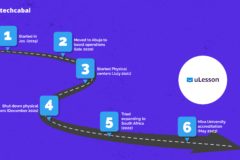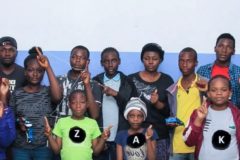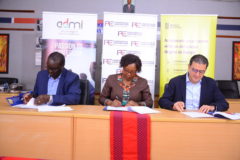Nigeria is a country with a lot of potential. According to a survey that considered the quantity and quality of startups as well as several economic and business indicators at the national level, the country ranked second, with South Africa as the top country for startups in Africa. The country also has one of the highest youth populations worldwide.
However, several factors currently hinder that potential. Despite having one of the youngest populations worldwide, Nigeria’s youth unemployment rate stood at 19.6% in 2021. The country can only boast of a meagre 3 million people in formal employment and the unemployment rate is even more damning, as 23 million Nigerians are without employment, with the majority of the country’s youth making up this group. For context, the International Labour Organisation projects that 73 million young people will be unemployed worldwide by 2022.
The state of the Nigerian education sector is also a cause for great concern. Nigerian universities were on strike for 8 months this year, the 16th nationwide strike since 1999. The rot extends beyond the tertiary level; Nigeria also has 11 million out-of-school children—the highest in the world. An estimated 38% of the population— 76 million people— is illiterate, according to the Minister of Education.
The unstable education system in Nigeria has led thousands of young Nigerians to find alternatives for quality education outside the country for the few that can afford it, or online. Currently, Coursera, one of the world’s largest online learning platforms, supports the skills development of over 1.3 million Nigerians, who have used the platform to enroll in more than 2.2 million courses.
Now, Coursera has partnered with Nigeria’s National Information Technology Development Agency (NITDA) to provide a select group of students with access to educational materials from prestigious institutions like Yale, and industry leaders like Meta and Google to better help Nigerians upskill themselves. The students will be selected by the NITDA, and the partnership is projected to reach 8,000 Nigerian students in the first year.
This partnership also offers Nigerian students access to the portfolio of professional certificates offered by the online platform. These certificates are created to help students provide the necessary proof that they have the skills required to begin a career in a particular field, like software programming, in as little as 3 months. These skills will be required more and more by the Nigerian labour market, which projects 3 million digital jobs to be created in the next four years.
Hadi Moussa, the managing director for Europe, the Middle East, and Africa (EMEA) at Coursera, told TechCabal via text that the opening cohort is targeted at three groups. The first group are employees across a diverse range of companies and organizations who require digital skills to advance their careers.
The partnership will also serve graduates of the NYSC programme who have been out of school for at least a year, and students participating in the Student Industrial Work Experience Programme. He added that for this group, Coursera is seeking to give recent and future graduates the skills needed to enter the workforce and immediately contribute to the digital economy.
The third group comprises unemployed youth in Nigeria, including those who did not attend university but possess entrepreneurial ambitions. Moussa added that this group was selected to help alleviate youth unemployment in Nigeria and encourage successful entrepreneurship across the country.
When asked how the partnership would reach 8,000 students in its first year, he stated that Coursera would work closely with NITDA to identify and reach out to learners who meet the criteria. He also mentioned that there are plans to engage with Nigerian businesses and educational institutions to help select potential students.
Moussa said that Nigeria was chosen because of its extraordinary potential and Coursera’s plan to help it achieve this potential. “We believe that there is both an urgent need to equip Nigeria’s young people with the skills needed to enhance their careers and lives and an exceptionally high value to be gained from doing so. Our recent Global Skills Report found that Nigerian learners are lagging behind their global peers when it comes to developing key contemporary competencies across the technology, business, and data science domains, with Nigeria ranking 98th in the world and 10th in Africa in the 2022 edition”, he shared.
Speaking on the partnership, Kashifu Inuwa, the Director-General of NITDA, said: “Globally, there is a shortage of talents, so we are creating a mandate to develop a talent strategy because we have a competitive advantage as a country with our vast human and natural resources. By partnering with Coursera to upskill our workforce, Nigeria can seize the opportunity to fill that gap.”





















